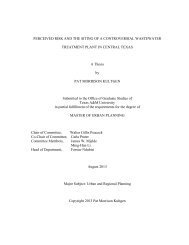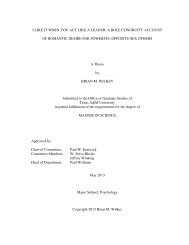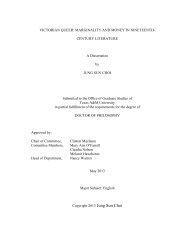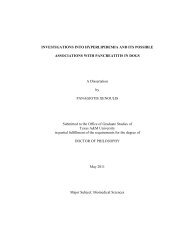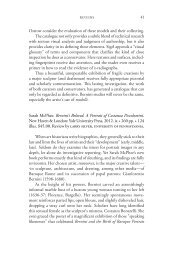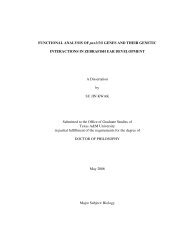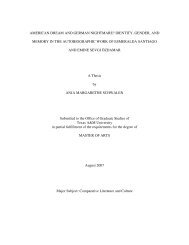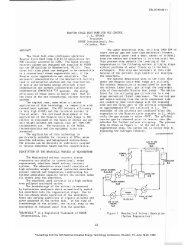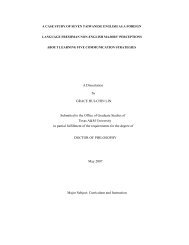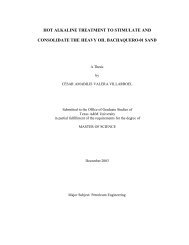THE EFFECT OF ETHICAL SIGNALS ON RECRUITMENT ...
THE EFFECT OF ETHICAL SIGNALS ON RECRUITMENT ...
THE EFFECT OF ETHICAL SIGNALS ON RECRUITMENT ...
You also want an ePaper? Increase the reach of your titles
YUMPU automatically turns print PDFs into web optimized ePapers that Google loves.
ehaviors. These ethical signals can affect important organizational variables such as<br />
morale, commitment (especially affective), satisfaction, identification (employees might<br />
not identify as much if the organization is unethical), job performance (drawing on<br />
social equity theory, employees may decrease performance to account for organization’s<br />
unethical actions), deviant workplace behavior, and state-like affect. In addition,<br />
unethical signals can have wide-ranging effects including a loss of customers, vendors,<br />
employees, and top management because they do not want to be identified with an<br />
unethical organization.<br />
Finally, personality is another area ripe for future research. Specifically, there<br />
are facets of conscientiousness, agreeableness, and openness to experience that may be<br />
related to ethics. First, drawing on the deontological theory of ethics, which stresses<br />
“duty” and “righteousness of behavior,” one aspect of conscientiousness is “dutifulness”<br />
(Goldberg, 1999). This describes someone who follows the rules and tells the truth.<br />
People high in dutifulness may be more influenced by ethical signals than those low in<br />
dutifulness. Second, one facet of agreeableness is “morality” (Goldberg, 1999). People<br />
high in morality also tend to stick to the rules and may follow a deontological view of<br />
ethics. They are likely to be significantly influenced by ethical signals (compared to<br />
individuals low in morality). Turning to the teleological view (i.e., examining<br />
consequences), one facet of openness to experience is liberalism (Goldberg, 1999).<br />
Individuals high in liberalism tend to believe that there is no absolute right and wrong.<br />
These individuals may be more likely to consider relative goodness over badness of each<br />
alternative as opposed to using strict guidelines.<br />
94



